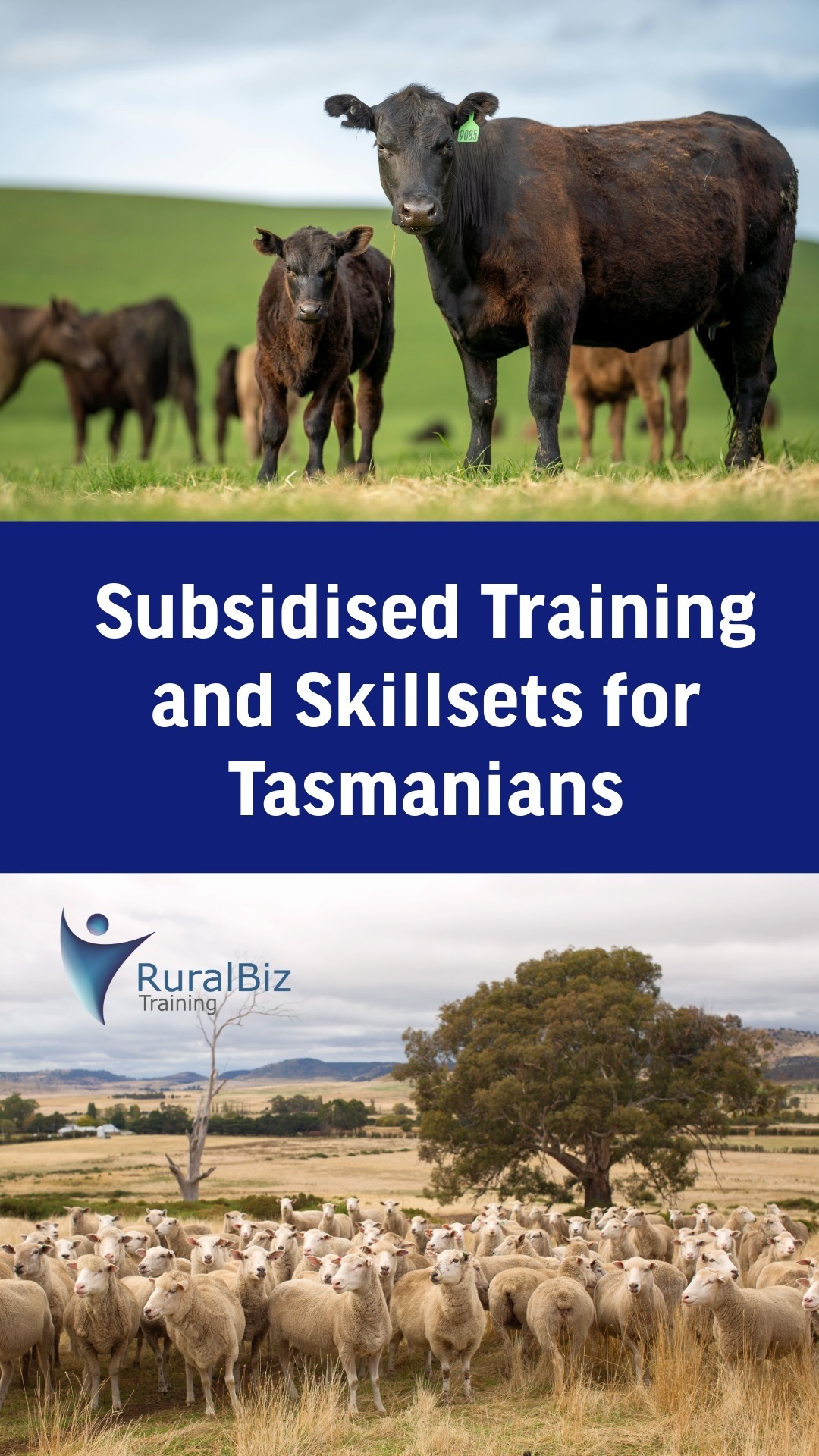17 Sep, 2025
Highly subsidised Agricultural training for Tasmanians
Expressions of interest close Friday 10th October 2025.
This is an incredible opportunity for you to enhance your farm production and management skills with flexible, online study that is based on your own farm or workplace.
Expressions of interest are open for agricultural workers and self-employed farmers to enrol in the following qualifications or skillsets and enjoy a course fee subsidy of up to 90%.
- AHC50122 Diploma of Agriculture - estimated employer co-contribution is $1,000
- AHC51422 Diploma of Agribusiness Management – estimated employer co-contribution is $1,000
- AHC50324 Diploma of Production Horticulture - estimated employer co-contribution is $1,000
- Technology Skillset - estimated employer co-contribution is $170
AHCAGB521 Select and use agricultural technology
AHCAGB405 Analyse and interpret production data
- Horticulture Skillset – estimated employer co-contribution is $150
AHCPCM406 Develop a soil health and plant nutrition program
AHCPHT511 Develop a horticultural production plan
- Climate and Risk Management Skillset – estimated employer co-contribution is $150
AHCAGB518 Develop climate risk management strategies
AHCBUS610 Manage agribusiness risk
- Livestock Breeding Skillset – estimated employer co-contribution is $220
AHCLSK422 Identify and select animals for breeding
AHCLSK509 Develop and implement a breeding strategy
- Family Business and Succession Planning Skillset – estimated employer co-contribution is $230
AHCBUS512 Develop and implement family business structures and relationships
AHCAGB607 Manage succession planning
To express your interest, please complete the following form before Friday 10 October 2025:
Don’t see what you’re looking for? Book a discovery call with us to chat about your training needs and our course options.
Hurry! Places are strictly limited. Expressions of interest close on Friday 10 October 2025.
Study will commence early 2026.
The fine print:
To be eligible for a training place, learners must be employed by the employer that is co-contributing to the cost of training (including self-employed) at the time of application, and throughout the training period. The employment arrangement can be casual, part-time, or full-time. Funding is subject to availability, eligibility and approval from the Department of State Growth, Tasmania. Building a Skilled Workforce - Existing Worker Fund is the Fund that subsidises the training.
Eligible learners:
- can undertake training in more than one qualification, course or skill set per round
- will be eligible for a training place regardless of their prior qualifications.
- will also need to meet any course specific essential entry requirements
- Learners must meet the course entry requirements including having access to a farm or agricultural business that operates on a commercial scale. Learners will base their assessments on this enterprise and will develop their knowledge of the business in the process of completing their course.
- Learners must be a Tasmanian resident with work and study rights - such as being an Australian citizen, permanent resident or approved visa holders (visa holders should contact us for confirmation of eligibility).
- The learners employer must pay the specified contribution - for businesses with less than 20 full-time equivalent employees the contribution is 10%. Larger businesses should contact us to discuss.
Subsidised by the Department of State Growth, Tasmania to approved applicants. Successful applications will be notified and training is expected to commence in early 2026.
Learners are not eligible for a place under the Fund if they are:
- not a Tasmanian resident
- currently funded for the same training by another funding source, or
- apprentices and trainees with a current training contract
- Australian State or Federal Government employees
- employees of a Tasmanian government agency as defined in the Skills Tasmania Policy Statement - Employer Eligibility - Subsidising Employees of Government Organisations.

